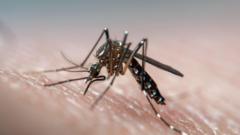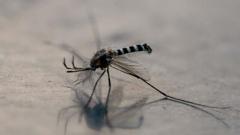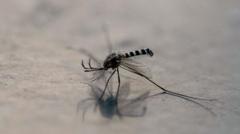To combat diseases like dengue, researchers are exploring an unconventional approach - rendering male mosquitoes deaf, thus impeding their ability to mate. Scientists from the University of California, Irvine, conducted experiments on Aedes aegypti mosquitoes, pathogens responsible for infecting about 400 million people annually. Males chase females during their mid-air mating rituals, relying heavily on their keen sense of hearing to respond to the attractive wingbeats of females.
By modifying a genetic pathway responsible for the male mosquito's hearing, the team achieved a startling result: the male mosquitoes failed to make contact with females even after three days together in a confined space. The focus was on disrupting a critical protein called trpVa, which plays a crucial role in auditory sensitivity.
In comparison, wild male mosquitoes were able to mate multiple times, successfully fertilizing nearly all available females. The research team conclusively demonstrated that the deafening alteration rendered mating among the modified males non-existent. Their findings have been published in the journal Proceedings of the National Academy of Sciences (PNAS).
Dr. Joerg Albert, a German mosquito mating expert, has noted the potential viability of this research. He emphasized the significance of hearing in mosquito reproduction and warned that without it, male mosquitoes might face extinction. Additionally, he mentioned that alternatives, such as releasing sterile males to manage mosquito populations, are also under consideration.
It's essential to recognize that while mosquitoes are vectors for various diseases, they play a crucial role in the ecosystem, serving as a food source for numerous animals and some even assist in pollination.











